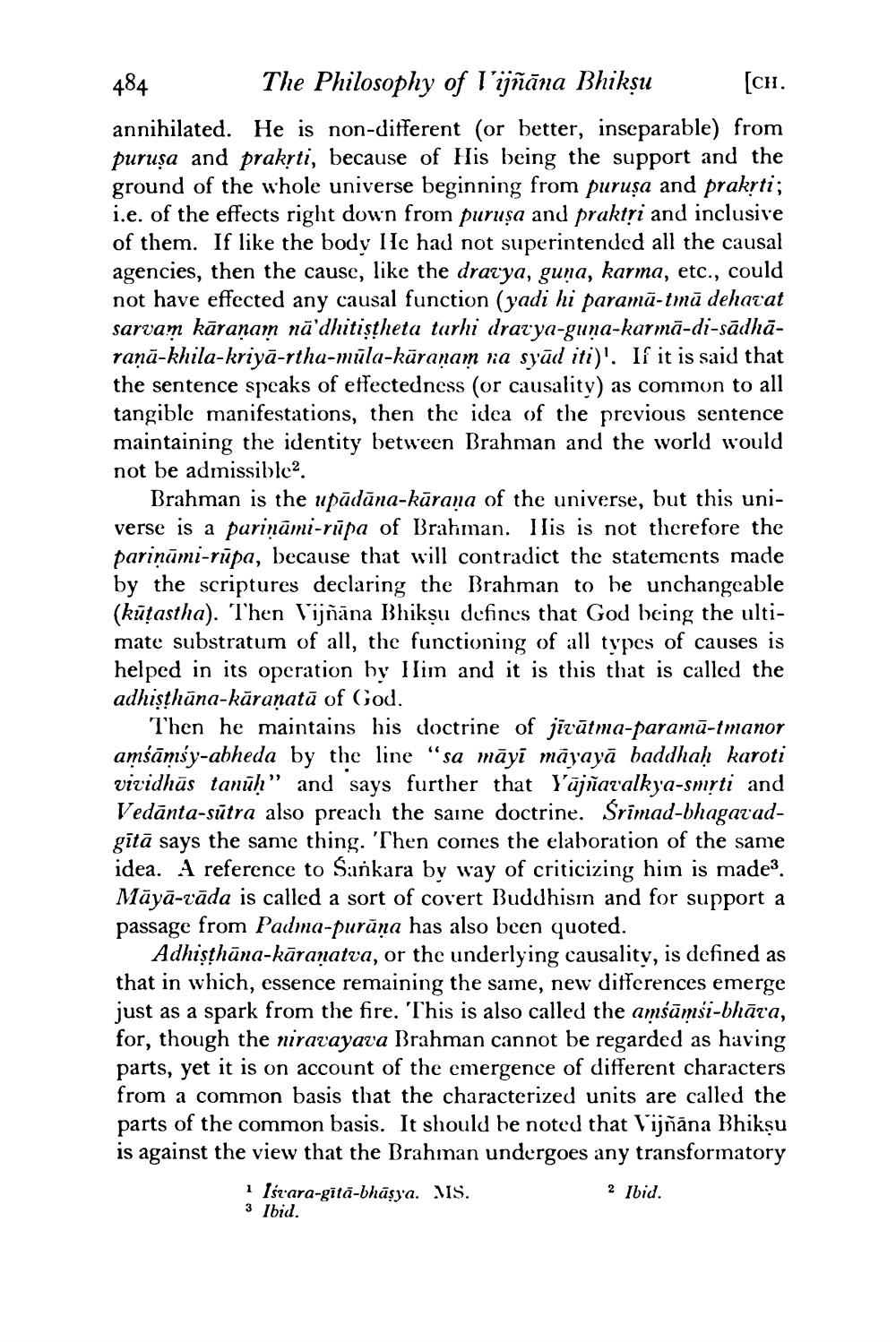________________
484
The Philosophy of l'ijñāna Bhikṣu
[CH.
annihilated. He is non-different (or better, inseparable) from puruşa and prakṛti, because of His being the support and the ground of the whole universe beginning from purușa and prakṛti; i.e. of the effects right down from purușa and praktṛi and inclusive of them. If like the body He had not superintended all the causal agencies, then the cause, like the dravya, guṇa, karma, etc., could not have effected any causal function (yadi hi paramā-tmā dehavat sarvam kāraṇam na'dhitiṣṭheta tarhi dravya-guṇa-karmā-di-sādhāraṇa-khila-kriya-rtha-mūla-kāraṇam na syad iti)'. If it is said that the sentence speaks of effectedness (or causality) as common to all tangible manifestations, then the idea of the previous sentence maintaining the identity between Brahman and the world would not be admissible2.
Brahman is the upādāna-kāraṇa of the universe, but this universe is a pariņāmi-rupa of Brahman. His is not therefore the pariņāmi-rupa, because that will contradict the statements made by the scriptures declaring the Brahman to be unchangeable (kūṭastha). Then Vijñāna Bhikṣu defines that God being the ultimate substratum of all, the functioning of all types of causes is helped in its operation by Him and it is this that is called the adhiṣṭhāna-karaṇatā of God.
Then he maintains his doctrine of jivātma-paramā-tmanor amśāmsy-abheda by the line "sa māyī māyayā baddhaḥ karoti vividhās tanuḥ" and says further that Yajnavalkya-smrti and Vedānta-sūtra also preach the same doctrine. Śrīmad-bhagavadgītā says the same thing. Then comes the elaboration of the same idea. A reference to Sankara by way of criticizing him is made3. Māyā-vāda is called a sort of covert Buddhism and for support a passage from Padma-purāna has also been quoted.
Adhiṣṭhāna-kāraṇatva, or the underlying causality, is defined as that in which, essence remaining the same, new differences emerge just as a spark from the fire. This is also called the amśāmsi-bhāva, for, though the niravayava Brahman cannot be regarded as having parts, yet it is on account of the emergence of different characters from a common basis that the characterized units are called the parts of the common basis. It should be noted that Vijñāna Bhikṣu is against the view that the Brahman undergoes any transformatory
2 Ibid.
1 Isvara-gita-bhāṣya. MS. 3 Ibid.




